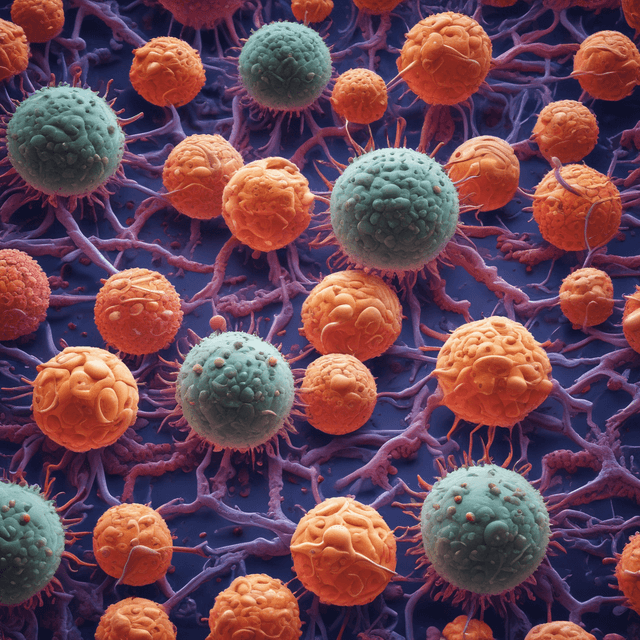
| Field | Biological science |
| Focus | Study of the body's defense mechanisms against harmful agents |
| Emergence | 18th century, as a branch of microbiology |
| Key roles | Cornerstone of epidemiology • Cornerstone of public health • Cornerstone of evolutionary biology |
| Applications | Infectious disease prevention • Infectious disease treatment |
| Key discoveries | Innate immune system • Adaptive immune system |
| Ongoing challenges | Autoimmunity • Chronic infections • Emerging threats |
Immunology is the scientific discipline focused on the body's intricate systems for detecting and defending against harmful microbes, toxins, and other foreign entities. As a field, immunology traces its origins to the 18th century and the dawn of modern microbiology, advancing hand-in-hand with our understanding of the role of microorganisms in health and disease.
The foundations of immunology were laid in the late 1700s by pioneering naturalists and physicians such as Edward Jenner, Louis Pasteur, and Robert Koch. While investigating the causes and prevention of infectious diseases like smallpox, tuberculosis, and cholera, these scientists made key discoveries about the body's natural defenses.
Jenner's development of the first vaccine in 1796 by inoculating patients with cowpox to prevent smallpox is considered one of the seminal achievements in immunology's history. Pasteur's groundbreaking work on the germ theory of disease in the 1860s further elucidated the role of microbes in infection and immunity. And Koch's identification of specific bacteria as the causative agents of anthrax, tuberculosis, and cholera in the 1880s transformed both medical practice and the scientific study of the immune system.
Building on this foundation, immunologists in the late 19th and early 20th centuries steadily mapped out the basic architecture and functions of innate and adaptive immunity. Key breakthroughs included the discovery of antibodies, white blood cells, and the complement system - the body's biochemical cascade for neutralizing pathogens. By the mid-1900s, immunology had become an established discipline in its own right, with important applications in fields like epidemiology, vaccinology, and organ transplantation.
At its core, the immune system is an intricately coordinated network of cells, tissues, and organs that work together to protect the body from infection and disease. The two main components are the innate immune system and the adaptive immune system.
The innate immune system provides a rapid, non-specific first line of defense against pathogens. It includes physical barriers like the skin, as well as specialized immune cells like phagocytes, natural killer cells, and the complement system. These elements broadly detect and neutralize foreign microbes upon initial exposure.
In contrast, the adaptive immune system mounts a highly specific, long-lasting response to particular threats. Key adaptive immune cells include B lymphocytes, which produce antibodies, and T lymphocytes, which directly attack infected cells. Through the processes of clonal selection and somatic hypermutation, the adaptive system can remember previous exposures and rapidly respond when re-encountering a pathogen.
Immunologists have further identified how the innate and adaptive systems communicate and coordinate with each other, as well as the complex signaling pathways and regulatory mechanisms that govern the immune response. This deep understanding has enabled major breakthroughs in fields ranging from infectious disease prevention to cancer immunotherapy.
The insights of immunology have been transformative for the practice of public health and epidemiology. By elucidating the mechanisms behind natural immunity and vaccination, immunological research has underpinned some of the most impactful public health interventions in history.
Major applications include:
Immunology has also provided key tools for epidemiologists to track the spread of disease, identify at-risk populations, and evaluate the effectiveness of interventions. The field's focus on evolutionary aspects of host-pathogen coevolution has further illuminated the dynamics of zoonotic diseases and antimicrobial resistance.
Despite the many breakthroughs and applications of immunology, significant challenges and open questions remain in the field. A fuller understanding of the immune system's complexity - with its myriad cell types, signaling pathways, and regulatory networks - continues to elude researchers.
Key areas of ongoing investigation and debate include:
Additionally, immunologists must grapple with the inherent adaptability and evolutionary nature of pathogens, which can rapidly evolve to evade immune defenses. Maintaining the upper hand in this biological arms race remains an ever-present challenge.
As the field of immunology continues to advance, its critical importance for safeguarding public health, informing medical interventions, and illuminating core biological processes will only become more apparent. Mastering the mysteries of the immune system remains a paramount scientific frontier.